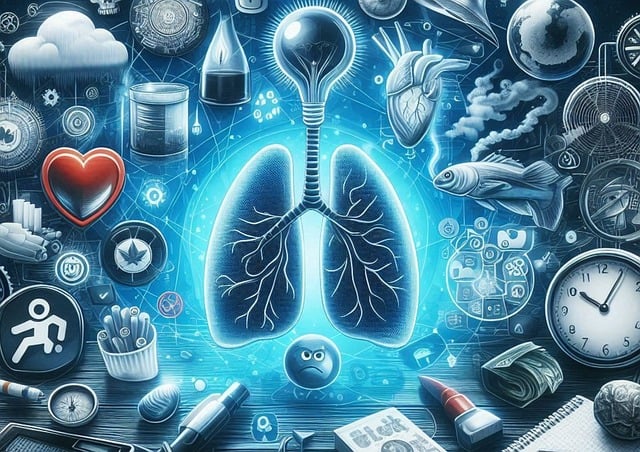Addiction recovery is a multifaceted process that encompasses more than just stopping substance use. It involves addressing psychological, emotional, and social issues tied to addiction, including managing chronic stress and healing from trauma. Effective recovery strategies include various therapies like cognitive-behavioral therapy (CBT) and medication-assisted treatments, particularly for opioid use disorder. A robust support system involving family, community, and societal support is crucial for a holistic approach to healing. Recovery is an ongoing journey that requires continuous medical interventions, access to resources, and a supportive environment for sustained well-being and abstinence. For successful long-term recovery, it's essential to consider the biological aspects of addiction, including genetic predispositions affecting neurotransmitter systems and reward pathways in the brain. Medication-assisted treatment (MAT) is key in managing withdrawal symptoms and reducing relapse risks, complemented by CBT for behavioral change. Inclusive policies ensuring access to these tailored recovery services are vital for advocating and providing care to those affected by addiction. Understanding the multifaceted nature of addiction recovery, including its biological underpinnings, is critical for effective treatment planning.
Recovery from addiction is a multifaceted journey that extends beyond mere abstinence from substances. It encompasses a transformative process that addresses the complex interplay of psychological, biological, and environmental factors. This article delves into the various dimensions of addiction recovery, offering insights into how understanding each component can lead to more effective and sustained healing. From the critical role of support systems to the pivotal importance of personalized treatment plans, we explore the myriad strategies that underpin a robust recovery. Biological influences, psychological well-being, lifestyle adjustments, therapeutic interventions, and the power of community are all integral parts of the recovery narrative. Additionally, we examine how mindfulness, spiritual practices, and nutrition contribute to recovery, as well as how technology plays a role in this evolving journey. Whether you or someone you know is on the path to recovery, this comprehensive guide aims to shed light on the tools and approaches that can facilitate a healthier, more fulfilling life post-addiction.
- Understanding the Scope of Addiction Recovery
- The Psychological Aspects of Addiction and Recovery
- Biological Factors Influencing Substance Use Disorders and Their Treatment
Understanding the Scope of Addiction Recovery

Addiction recovery is a multifaceted and deeply personal journey that encompasses far more than abstaining from substance use. It involves addressing the underlying psychological, emotional, and social factors that contribute to addiction, which can include chronic stress, trauma, or mental health disorders such as depression or anxiety. This process often necessitates a tailored approach, with evidence-based treatments like cognitive-behavioral therapy, medication-assisted treatment for opioid use disorder, and support from peers and professionals. The scope of addiction recovery extends beyond the individual to include family dynamics, community engagement, and societal support systems. It’s a holistic endeavor that requires not only medical intervention but also support networks, access to resources, and an environment that fosters healing and growth. Recovery is a continuous process, where each step, whether it’s acknowledging the need for change, engaging in treatment, or maintaining sobriety, is crucial to the individual’s overall well-being and long-term success in sustaining a substance-free lifestyle. Understanding this broad scope is essential for effectively supporting those affected by addiction, as it underscores the necessity of comprehensive care and the importance of policies that fund and facilitate such recovery services.
The Psychological Aspects of Addiction and Recovery

Addiction recovery is a complex journey that encompasses not only the physical cessation of substance use but also a profound transformation of psychological and emotional states. The psychological aspects of addiction are multifaceted, often rooted in underlying mental health issues, past traumas, or unresolved emotional pain. These factors can create a cycle of compulsive behavior and emotional distress that is difficult to break without professional support. Recovery from addiction involves addressing these deep-seated psychological elements through a combination of therapy, self-reflection, and the development of coping mechanisms tailored to each individual’s needs.
Cognitive-behavioral therapy (CBT), for instance, is a cornerstone in treating the psychological aspects of addiction by helping individuals recognize and change the thought patterns that lead to harmful behaviors. Mindfulness practices and stress management techniques are also integral to recovery as they promote awareness and self-regulation, enabling recovering individuals to navigate triggers and cravings more effectively. The journey of addiction recovery is not just about abstinence from substances; it’s a profound process of healing that requires addressing the psychological roots of addiction, fostering emotional well-being, and building resilience against relapse.
Biological Factors Influencing Substance Use Disorders and Their Treatment

The journey of addiction recovery is deeply intertwined with an individual’s biological makeup, which can significantly influence susceptibility to substance use disorders (SUDs). Genetic predispositions play a pivotal role in this context; research has identified various genes that may increase the risk of developing an addiction. These genetic factors can affect neurotransmitter systems within the brain, altering the reward pathways and modulating responses to drugs or alcohol. This biological basis for addiction underscores the importance of comprehensive treatment approaches that address not only the psychological and social aspects but also the physiological underpinnings. Treatment modalities often include medication-assisted treatment (MAT), which employs medications to manage withdrawal symptoms, reduce cravings, and prevent relapse. MAT is tailored to the individual’s unique biological responses, ensuring a more effective recovery process by targeting the specific neurological alterations that occur due to chronic substance use. Additionally, interventions such as cognitive-behavioral therapy (CBT) can be integrated with MAT to enhance coping strategies and reinforce behavioral change, contributing to a holistic recovery from SUDs. Understanding the biological factors influencing addiction is crucial for developing and personalizing treatment plans that cater to the complex needs of individuals seeking recovery.
Recovery from addiction is a multifaceted journey that extends beyond mere abstinence from substances, encompassing a holistic transformation of an individual’s psychological, biological, and social well-being. The complexities of addiction and the intricate process of recovery are detailed throughout this article, highlighting the importance of a comprehensive approach to healing. By understanding the scope of addiction recovery, addressing the psychological challenges that come with it, and acknowledging the biological factors at play, individuals can navigate the path to recovery more effectively. It is through this nuanced understanding and commitment to supportive resources that lasting change and a fulfilling life in recovery can be achieved.




